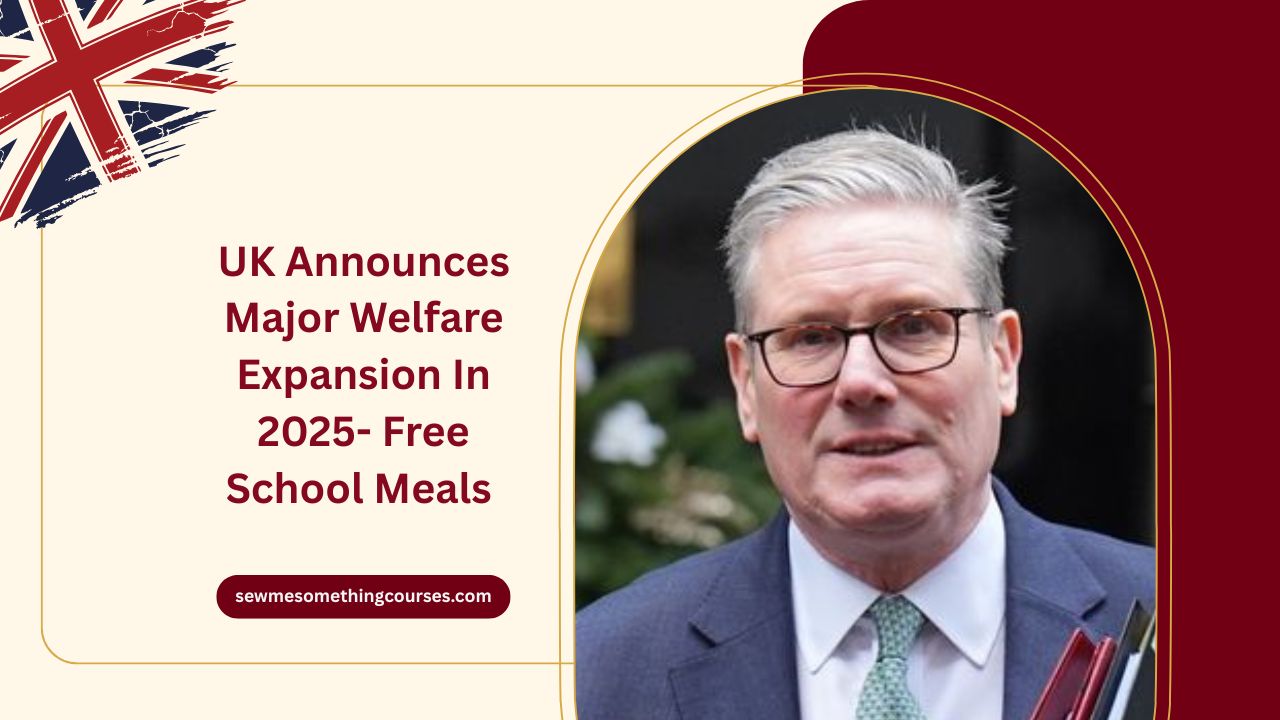The UK government has revealed a groundbreaking policy change set to take effect in April 2026, expanding the eligibility for free school meals to an additional 500,000 children across England.
This welfare reform aims to tackle child poverty and ensure more children have access to nutritious meals, helping to alleviate financial burdens on low-income families.
Major Changes to Free School Meal Policy
Starting in April 2026, the new policy removes the income cap for families receiving Universal Credit, a significant change from the current rules where eligibility is limited to families earning below £7,400 annually.
Under the new plan, all children in Universal Credit households will automatically be eligible for free school meals, regardless of income level.
This major change will ensure that more families receive much-needed support, saving an estimated £500 per child each academic year.
With the ongoing cost-of-living crisis, this policy represents an important step towards reducing child hunger and improving educational access.
The Impact on Families and Children
The new system eliminates previous barriers, such as means-testing and complex paperwork. Under the current policy, families must submit detailed income documents to qualify, a process that has been criticized for being cumbersome and confusing.
From 2026, parents will simply need to provide their National Insurance number for verification. This change is designed to make the process smoother and ensure that more eligible children can take advantage of the benefit.
The policy aims to lift approximately 100,000 children out of poverty, addressing the wider issue of food insecurity that often indicates deeper financial hardship.
By expanding free school meal eligibility, the government hopes to provide relief to families while also improving child development and academic outcomes.
Detailed Comparison of Eligibility
The table below compares the existing system with the new policy to be implemented in 2026:
| Eligibility Criteria | Existing System (Until 2025) | New System (From April 2026) |
|---|---|---|
| Benefit Requirement | Universal Credit | Universal Credit |
| Income Threshold | Less than £7,400/year | No income cap |
| Application Method | Detailed income assessment | National Insurance Number verification |
| Estimated Number of New Beneficiaries | Not applicable | Over 500,000 children |
| Average Household Saving Per Child | Not uniformly applicable | Approximately £500 per year |
Broader Welfare Measures to Support Families
In addition to the expanded free school meals, several other welfare measures are being introduced to assist families and reduce inequality. These include:
- Expansion of Free Breakfast Clubs: More schools will offer free breakfast, ensuring children have access to proper nutrition at the start of their school day.
- Increased Welfare Support: The government has increased Universal Credit payments above inflation, ensuring families can keep more of their earnings.
- Extended Childcare Hours: Parents of young children will be able to access up to 30 hours per week of government-funded childcare, helping working families save on daycare costs.
- School Uniform Cost Controls: New regulations will cap the number of branded school uniform items required, reducing financial strain on families.
These initiatives align with the Plan for Change, a broader government strategy to reduce child poverty and increase access to essential services.
Fighting Food Waste and Supporting Sustainable Practices
The UK government is also investing £13 million into food redistribution programs as part of its commitment to tackling food waste.
Under the Tackling Food Surplus at the Farm Gate scheme, surplus food from farms will be directed to food charities and community kitchens, helping to feed families in need and promote sustainable food practices.
Implementation Timeline
To ensure smooth implementation, schools will begin preparing for the changes in late 2025, with early application options available by Q1 2026.
The full rollout is expected to take place at the start of the academic year in 2026. The new system aims to streamline the application process and minimize delays in providing meals to eligible children.
| Implementation Phase | Timeline | Responsible Entities |
|---|---|---|
| Policy Announcement | Mid-2024 | UK Government – Department for Education |
| School Readiness Reviews | Late 2025 – Early 2026 | Local Authorities, School Boards |
| Application Window Opens | Q1 2026 | Individual Schools |
| Full Implementation | Start of Academic Year 2026 | All eligible educational settings |
| Post-Launch Assessment | By mid-2027 | Government Oversight Committees |
This welfare expansion marks a critical shift in addressing child poverty and nutritional inequality. The UK’s new free school meal policy will provide long-term benefits, not just for children’s health, but also for their education, helping to break the cycle of poverty.
FAQs
Who will benefit from the new free school meal policy?
The policy will benefit children in Universal Credit-receiving households, with no income cap, starting in April 2026.
How much will families save under this new policy?
Families can save approximately £500 per child per academic year by receiving free school meals.
When will the new free school meal policy come into effect?
The policy will be fully implemented at the start of the 2026 academic year, with preparations beginning in late 2025.

